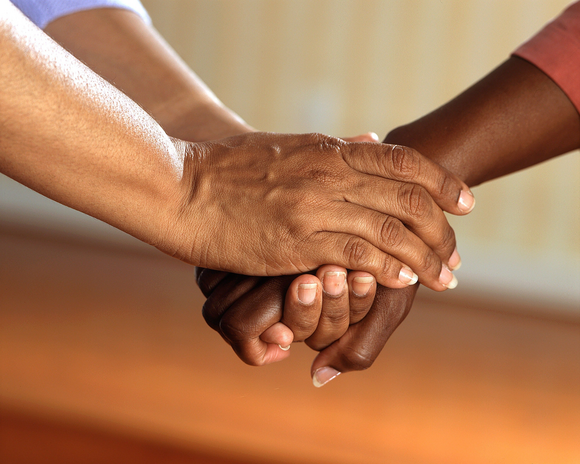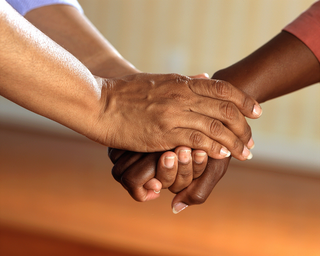One of the main phrases emphasized this year is “prioritizing your mental health,” but what does that actually mean? As this year has provided endless blows and attested to the continuation of injustice and oppression, how are we supporting the mental health of marginalized communities, including Black and Indigenous folks? As “Thanksgiving” reminds many of feasts, family and gatherings, it reminds Indigenous people of the murders and oppression committed against their communities and thefts and dehumanization against their culture and humanity. For many this holiday season, these times are rooted in separation as well as mourning their loved ones who passed due to the COVID-19 pandemic. There are questions, immeasurable loss and evaluations in regards to where to go from here. 2020 being a detrimental toll on one’s mental health is an understatement. There are misconceptions and practices to keep in mind to avoid policing Black trauma, refrain from giving into microaggressions and showing up in ways that are respectful, considerate and sincere.
What Is Black Trauma?
Black Trauma is not restricted to a singular definition; it is one rooted in generational trauma, slavery, persistent injustices, societal expectations, etc. Trauma is not just in the physical sense but also in the emotional, verbal, structural and physical senses. Imagine having the validity of your life being questioned and undermined in syllabi, daily news and bigoted statements rooted in racism and white supremacy. Black trauma reflects itself through slavery and structural inequalities which are rooted in suppressing Black people in order to attempt to force assimilation onto us. Aside from this, it is the constant pressure pitted against Black youth to be the “best” and to always have to work ten times harder than others in order to receive a fraction of whatever the goal is. The pressure, the history and the present create heavy amounts of unjust weight on Black people to carry which is deeply rooted in Black people being expected to carry society; the same systemic, institutional and ideological framework which builds off of oppressing us. Our trauma is not something that is monolithic as trauma impacts us (in the Black community) in differing and valid ways. The thing about Black Trauma is that it is embedded in everything we consume and the very things we choose to pay attention to and ignore. Black trauma does not reemerge when a Black person is murdered. It is a persistence that is covert and overt.

Non-Monolithic Mental Health Journeys
Not everyone is on the same mental health journey and that is more than okay. There is an unrealistic expectation for healing to be rooted in the same mechanisms and techniques for everyone as it is supposed to push others toward a new phase. However, this is harmful. The goal is not to coerce or push anyone to pursue a pathway they are not comfortable with. What should be done instead is showing up and asking ways to support and to be present. Your job is not to judge or assume but rather to demonstrate to a Black and/or Indigenous person that their personal and collective concerns are of utmost importance. When we talk about mental health, it is constantly rooted in the white perspective based on false positivity and togetherness. Are we really in this together? Or do different communities have differing struggles, experiences and perspectives. When we talk about mental health, we have to break the stigmas and not speak over others but making sure we are amplifying their platforms and validating their processes in regards to how they want to go about healing. Black and Indigenous trauma is deeply complex and intersectional. There should be respectful approaches to not impede or intrude on their journeys, while showing through action plans and your own form of reparations in regards to how you will support those communities. It also starts with acknowledging your privilege and recognizing that no Black and/or Indigenous person (or marginalized person) owes you a glimpse into their story. We do not owe you insights into our experiences as well as our joys. These are ours and we can choose to do whatever we’d like.
Related: Anxiety on Campus: Feeling Seen & Speaking Out
Perpetuance of Trauma Through Media
As I have always stated, Black trauma is persistently exploited in the media and through other forms of informational sharing. Logging into Twitter, Instagram, Facebook and other social media platforms can heighten PTSD and can be treacherously draining to see Black people being murdered by police on camera, harassed, racially profiled and disrespected at every turn. During circumstances where Black death is shared and depicted, do not re-share it. To constantly show those displays goes into an ever-continuous cycle of Black bodies being used under trends and algorithms. Share action plans instead as well as multiple resources to support those impacted.
You can not and should not blame Black and Indigenous folks for wanting to take a break from social media. What is easy for you to turn off is something that we can not ignore because our lives are on the line. Privilege sets in when you choose to be an activist then drop those issues when it is no longer sufficient to fit your Instagram aesthetic or current “phase.” There should be a recognition that when you use social media to clout-chase or to be an opportunist, you are clearly gambling with Black lives. The presence of social media can be too much to witness and attest to each day, so to aspiring allies out there: you have a job not to continue harmful cycles of reinforcing trauma against Black people.

False Positivity and Dispelling The “Strong” Trope
Here are some things NOT to say to Black/Indigenous people.
-
“You are so strong, you’ll be okay.”
-
“If you keep working hard, things will be better.”
-
“I’m sorry if you feel that way.”
-
“You are overthinking this.”
-
“Consider it another way…”
-
“Calm down.”
-
“Stay positive.”
-
“Don’t worry about it.”
-
“They had good intentions.”
-
“Suck it up.”
Now, from a personal standpoint, I have been told these responses from others during experiences of microaggressions and disrespect. I am far from the only one. There is yet another unrealistic expectation that Black and Indigenous people should not be surprised about injustice because it’s something that they should be “used to.” The normalization of state violence against Black and Indigenous people reinforces the binds of white supremacy terrorism through the gaze of Black people (and particularly Black womxn) being considered as the “backbones” of society and political sectors. There is no responsibility being extended to those who benefit from systems of oppression or recognizing that Black people do not have the job of being their educators. To engage in false positivity is to be toxic. To oversimplify a Black person’s issue is to engage in a neoliberal and dismissive tactic that everything will be “normal” and “fine” as the Black person is just overthinking things. Unless you are Black, you can not identify and point out what we see or what we experience. Always remember that what matters is impact over intent.

Offering Support
Extending yourself to others and reaching out is not an occasional task. It is ensuring that you extend to us the same respect you would like someone to extend to you. Black people do not owe anyone anything and there should be an understanding that you should begin by supporting Black people, uplifting Black people, centering Black people and taking time to reflect on your own actions. Words are not useful. They do not provide substance or any form of change but rather empty promises. Support is not interrupting, dictating or gaslighting. It is growing, learning, listening and not treating Black people like your charity causes. It is you doing the work (for once).

Changing Language and Rhetoric
We have to stop addressing wellness and mental health through a perspective based on monolithic practices and techniques. As stated earlier, not everyone is on the same mental health journey and such should be respected through acknowledging that each person goes about healing in their own way. The process of trauma is overwhelmingly not addressed in regards to the devastating impacts racism, systemic and institutional oppression holds. Be aware of your language and the impact it has. Understand that mental health and wellness extends beyond the white gaze of tea, meditation, yoga and a shitzu. There are levels of abolition which need to take place. As the Black community (along with the Indigenous community) have been engaging in this work for centuries, it is your time to engage in the heavy lifting. You need to own that this time and moving forward, you have to build yourself and take responsibility. If the word “care” is in your vocabulary, recognize that a part of caring is knowing when and how you contribute harm and benefit from privilege. The language is embedded in making Black people seem to be “weak, “inferior,” and not “worthy.” Part of your job is to do your research and know that we are far from it. But just because this is fact does not negate our humanity. No, Black people should not be normalized to the murders and injustices just because you are. The trainings and stigmas used to further white supremacist systems and institutions are built on using Black and Indigenous people and Black and Indigenous contributions.
Related: Being A Black Woman: A Guide to Self-Love

Educational Resources
Here are some articles to read to understand some of the issues mentioned in this article.
-
What is racial trauma? How Black therapists are helping patients cope
-
Racial Trauma, Resiliency and Ally Resources – WellCat Services
-
Black Americans experience deadly stress as a pandemic and violent racism collide, experts say
-
When black death goes viral, it can trigger PTSD-like trauma
How to Be A Better “Ally”
Show up. Mental health awareness and breaking stigmas should also call to address environmental racism and the lack of mental health resources allocated to predominantly Black and Indigenous communities. Part of the work of being an ally is comprehending that it will never be done and that you owe every single Black person (Trans*, Non-Binary, Queer, Disabled, etc.) your coins, your undivided attention and your actions. There is a toll that is constantly pushed on Black and Indigenous people from century to century and decade to decade. Recognize those traumas and how they will never go away. However, keep the same energy for Black joy. Uplift and center our stories across the diaspora (and no, you can not appropriate). We are not monolithic and every Black person’s healing process should be understood and protected through persistent support, action and a willingness to not center yourself. Never negate, assume or believe that you are entitled to our stories to benefit off of our labor or perspectives because you do not have access. During this season and moving forward, push yourself to mindful of what mental health means for marginalized communities and understand that this field significantly leaves out the impact of colonization, slavery, imperialism, corruption, colonialism and murder against Black and/or Indigenous people.
These are issues we must address.



